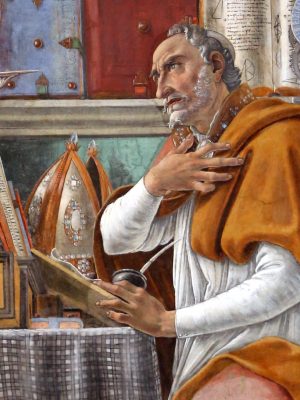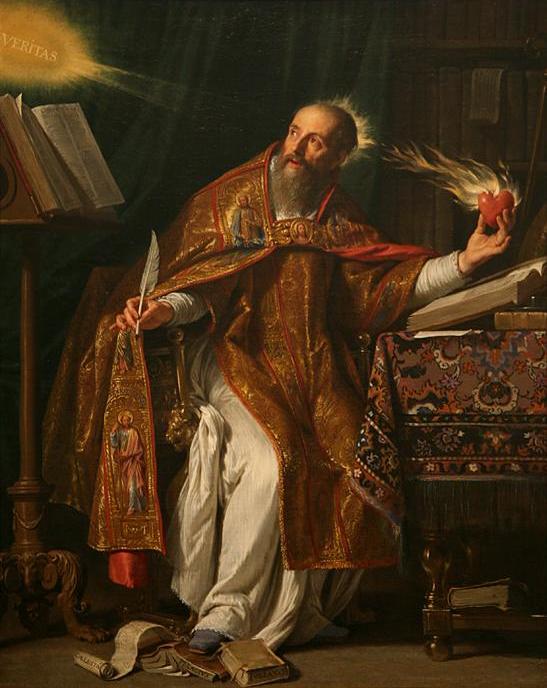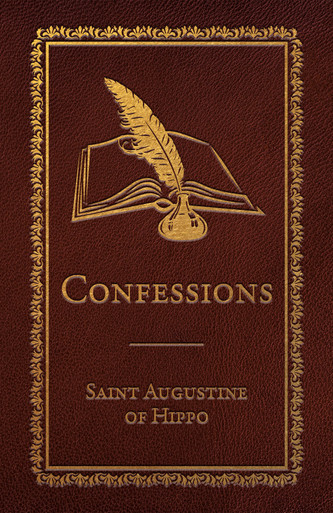Of all the autobiographies ever written by mere mortals, Confessions by Saint Augustine of Hippo is the greatest. In this masterpiece, you will find a Doctor of the Church longing for the true Doctor of the soul, Christ.
O God of hosts, turn us to you and show us your face, and we shall be saved. For whatever way the soul of man may turn, unless he turns to you, he nails himself to sorrows, regardless of whether the things he clings to outside of you and outside of himself are beautiful.
There would be no such things at all, unless they came from you. They rise and they set, and in their rising they begin to be, and they grow, and they come to their perfection, and once they have done so they grow old, and they pass away, and even if they do not all grow old, pass away shall they all.
So when they rise and they strive to be, the faster they grow, the faster comes the time when they will be no more. That is the rule of their being. You have given them this measure, because they are parts of things that do not all exist at the same time, but by their going and coming they all make up the whole universe whereof they are parts.
Why, so too our speech is made up of signs that make sound. No sentence could be complete unless one word gave way when it has sounded through all its parts, for another word to follow it.
By these things let my soul praise you, O God, creator of all things, but let it never be stuck to them by the glue of love that comes through the bodily senses. For they go where they were going, that they may no longer be; and they tear the soul by sickly desires, for the soul wills to exist and it loves to rest in what it loves.
But such things have no place of rest, for they do not stand still. They fly away, and who can follow them by the sense of the flesh? Who can even grab hold of them, when they are standing right there? The sense of the flesh is sluggish, for it too is flesh; that is its way. It suffices for what it was made to do, but it does not suffice to seize things that race from their due beginning to their due end. For in your word, by which they were created, they hear, “Thus far and no farther.”
Do not be a fool, my soul, do not go deaf in the heart from all the riots of your folly. You too must give ear—the Word himself calls to you to return. With him is the place of quiet that cannot be disturbed, where your love is never forsaken, unless you forsake love.
Behold, these things pass away, that others may succeed them, so that this lowest universe may stand stable in all its parts. “But do I depart to some place?” says the Word of God.
Set there the foundation of your house. Entrust to it, my soul, weary with disappointments, whatever you have from there. Entrust to Truth whatever you have of truth, and you shall lose nothing; what in you has begun to rot will flower again; what in you has languished will be made whole; what in you has trickled away will be given form again, will be made new, and will be bound again to you.
They shall not pull you down to where they are falling, but they shall stand with you and they shall abide forever before the ever-standing and ever-abiding God. Why then, my wayward soul, should you follow your flesh? Turn round, and let it follow you.
Whatever you understand by its means exists only in part, and you do not know the whole whereof they are but parts, and still they delight you. For even if your fleshly sense were fit to comprehend the whole, rather than, for your punishment, being confined to only a part of the universe, still you would wish that things present should pass on, so that all things together might please you the better. For by that same fleshly sense you hear what we are saying, and you do not want the syllables to stand stock still, but to fly away so that others may come and you may hear the whole.
That is the way with all things that are made up of parts that do not exist all at once. And all things in their entirety delight us more than do their single parts, if the things can be sensed all together. But far better than these is he who made all things, and he is our God, and he does not depart, for nothing can come to take his place.
ooo
This article is taken from a chapter in Confessions by Saint Augustine which is available from TAN Books.









